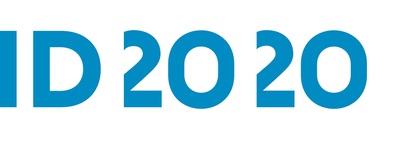Immunity Certificates: If We Must Have Them, We Must Do It Right — ID2020 Alliance releases white paper

SAN FRANCISCO, April 21, 2020 /PRNewswire/ — In a white paper, published today by the Harvard University Edmond J. Safra Center for Ethics, ID2020 urged policymakers, technology providers, and civil society organizations to collaborate to ensure that digital health credentials or “immunity certificates”, if implemented, are intentionally designed to protect privacy and civil liberties.
Over the past couple weeks, public health officials and policymakers have begun making the case for digital health credentials or “immunity certificates”. If implemented in conjunction with large-scale testing (for the COVID-19 virus and antibodies), immunity certificates could facilitate an incremental and orderly return to economic and social activities. While this presents a compelling opportunity, and one which may be worth considering, such a system cannot be allowed to compromise personal privacy rights, promote exclusion, or exacerbate existing social inequities.
“We all share an obligation to protect public health. But doing so should not mean giving up our right to privacy,” noted ID2020 Executive Director, Dakota Gruener. “Proven technologies, grounded in a respect for equity and human rights, can be redeployed to help protect society from a resurgence of the disease and put control of personal health information in the hands of the individual. But this approach must be pursued cautiously, with a full acknowledgement of the risks, and detailed plans to mitigate them.”
Immunity certificates would enable workplaces, schools, medical facilities, airlines, and other public or private venues to identify those who have tested positive for the antibody (or who have recently tested negative for the virus) through a verified credential issued by a medical provider (or certified testing center) and carried on a mobile phone. Because the credential is stored on the phone, rather than in a centralized database, it is vastly more secure and would enable the user to share it when, and with whom, they choose.
At this point, testing continues to lag far behind what would be needed to properly implement immunity certificates. But, with sufficient public investment and political will, the necessary level of testing could be achieved in the weeks and months ahead. Scaling access to serological testing will also help firm up our understanding of the virus, including the presence and duration of immunity and the potential for re-infection. At this time, these remain open questions.
The white paper is intended to further the public discourse about immunity certificates and ensure that such systems are developed consistent with the principles outlined in the ID2020 Manifesto for digital ID (developed in 2018 in partnership with the UN High Commissioner for Refugees). The Technical Requirements that underlie the ID2020 Certification also provide a valuable roadmap to assist technology providers and governments in the development of ethical, inclusive digital identity solutions, including digital health credentials.
Widespread social distancing orders have proven an effective strategy for containing the spread of the virus. But these strategies are not without significant economic, social, and psychological consequences. The time is now to begin planning for the next phase of the COVID-19 response and recovery. “If we need to do immunity certificates,” said Gruener, “let’s make sure we do them right.”
ABOUT ID2020
ID2020 is a global public-private partnership that harnesses the collective power of nonprofits, corporations, and governments to promote the adoption and ethical implementation of user-managed, privacy-protected, and portable digital identity solutions.
Through its advocacy, project funding, technical support, and by certifying best-in-class identity solutions, ID2020 is helping strengthen social and economic development globally. We want to ensure that all of the world’s seven billion people can fully exercise their basic human rights and reap the benefits of economic empowerment while also protecting user privacy and ensuring that their data is not turned into a commodity.
|
Contact: |
Ethan Veneklasen |
|
Head of Advocacy and Communications |
|
|
ID2020 |
|
|
Phone: |
(510) 209-3172 |
|
Email: |
![]() View original content to download multimedia:http://www.prnewswire.com/news-releases/immunity-certificates-if-we-must-have-them-we-must-do-it-right–id2020-alliance-releases-white-paper-301044459.html
View original content to download multimedia:http://www.prnewswire.com/news-releases/immunity-certificates-if-we-must-have-them-we-must-do-it-right–id2020-alliance-releases-white-paper-301044459.html
SOURCE ID2020 Alliance

